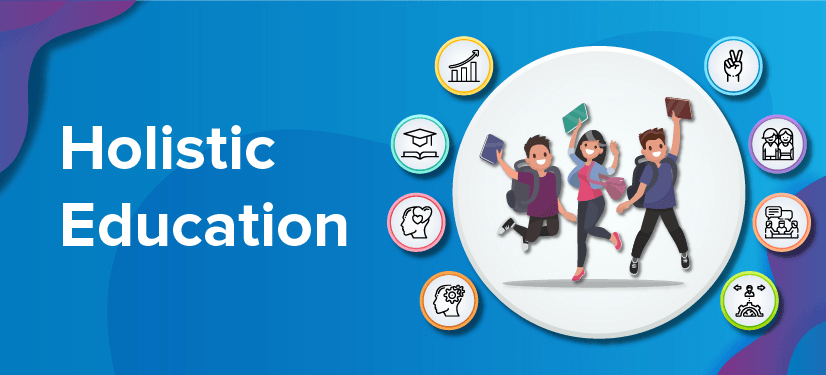Holistic Development in Education: Why It Matters More Than Just Academics
Education isn’t just about grades — it’s about shaping well-rounded individuals. Holistic development in education ensures students grow academically, emotionally, socially, and ethically.
Schools like SSRVM focus on value-based education and extracurricular activities for students — creating balanced individuals ready for life’s real challenges, not just exams.
Why Holistic Development in Education Matters
Here’s what makes holistic learning truly impactful:
Cognitive Skills + Life Skills
Sharpens reasoning, critical thinking, and problem-solving
Builds emotional resilience and empathy
Moral & Ethical Growth
Instills honesty, compassion, and respect
Fosters responsible global citizens
Physical & Emotional Well-being
Reduces stress, anxiety, and burnout
Promotes fitness, mindfulness, and mental health
Role of Value-Based Education in Shaping Character
At the heart of holistic development in education lies value-based education — a foundation that shapes behavior, decisions, and relationships.
Key outcomes:
Develops empathy and kindness
Teaches respect for diverse perspectives
Encourages integrity and ethical decision-making
With stories, reflections, and discussions, students learn to walk the right path — not just the easy one.
Extracurricular Activities for Students: Learning Beyond Books
Learning truly happens when students explore beyond textbooks. Extracurricular activities for students unlock hidden talents and life skills:
Arts & Culture – Enhances creativity and self-expression
Sports & Fitness – Builds teamwork, discipline, and leadership
Debates & Public Speaking – Boosts confidence and communication
Community Service – Nurtures empathy and social responsibility
At SSRVM, students discover their passions while learning resilience and teamwork — essential for real-world success.
Benefits of Holistic Development in Education
Choosing holistic education means choosing a brighter future for your child. Here’s why:
Balanced Growth – Academic, emotional, and social skills evolve together
Future-Ready Skills – Creativity, adaptability, and empathy are nurtured
Positive Mindset – Students learn to face challenges with confidence
Stronger Character – Integrity and values guide their journey
SSRVM’s Commitment to Holistic Growth
At SSRVM, holistic development in education isn’t just a concept — it’s a way of life:
Integrated curriculum blending academics with value-based education
Diverse extracurricular activities for students
Focus on mindfulness, yoga, and spiritual well-being
Safe, nurturing environment to thrive emotionally and intellectually
Frequently Asked Questions (FAQs) About Holistic Development in Education
1. What does holistic development in education mean?
Ans - Holistic development in education focuses on nurturing every aspect of a student — intellectual, emotional, physical, social, and moral — creating balanced individuals ready for life, not just exams.
2. How does value-based education benefit students?
Ans - Value-based education instills moral values, empathy, and integrity in students. It shapes character, guiding children to make ethical decisions and become responsible citizens.
3. Why are extracurricular activities for students important?
Ans - Extracurricular activities for students encourage creativity, leadership, teamwork, and self-expression. They help reduce academic stress while enhancing skills that are crucial for future success.
4. How does holistic development help improve mental health?
Ans - By balancing academics with emotional well-being, physical activities, and mindfulness practices, holistic education reduces anxiety, boosts confidence, and fosters resilience.
5. Can holistic education improve academic performance?
Ans - Yes, students engaged in holistic learning often perform better academically as they develop focus, critical thinking, and problem-solving skills while managing stress effectively.
6. What types of extracurricular activities are offered for students in holistic education?
Ans - Activities range from arts, music, dance, and drama to sports, debates, community service, yoga, and mindfulness programs — nurturing both skills and passions.
Final Thoughts: Educating Hearts and Minds
In the end, education should light the path — not just to a career but to a meaningful life. By embracing holistic development in education, we raise individuals who excel in academics and life.
The world needs more kind, compassionate leaders — and it all begins in our classrooms.

